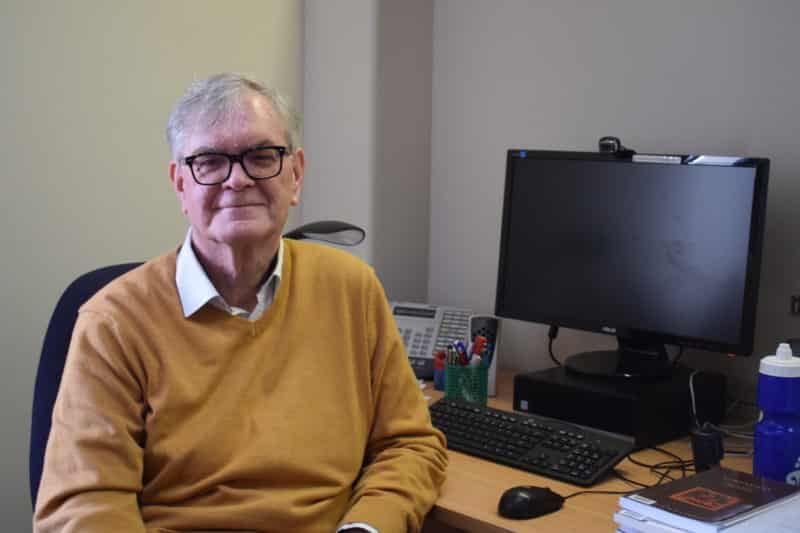Biblical scholars in New Zealand and Australia are hoping that their bishops will use their expertise more in current issues with which the Church is engaged, as well as encouraging young people to take up biblical studies.
Australian Catholic Biblical Association president Fr Kevin Waldie, SM, told NZ Catholic that they hope “to
influence the community in the way in which they understand scriptural theology, to have a greater presence
and to be consulted as experts”.
“We possibly could contribute a lot more to the Church through our expertise,” Fr Waldie said. “Because
scholars are working on current issues and have a wealth of experience behind them dealing with topics [and] teaching people.”
“Scholars who dedicate their lives at looking at the Scriptures or teasing out theological issues or dilemmas,
they are the ones that bishops should consult on occasion as well,” he said.
Synod
He said they could have had a bigger input in the ongoing synod as most scholars are already working on some the issues raised by the faithful, such as women priests/deacons or relating with the LGBT community.
“I know it [the synod] is a big enterprise where everyone was invited to come in and participate, but I think you do need a bit of expert input,” he said.
On the issue of women priests/deacons, for example, Fr Waldie said there was a Pontifical Biblical Commission document in the 1980s that concluded there was nothing scripturally that forbids women from being ordained. The document, however, was shelved at the time.
“This document came out with the conclusion that when you look very closely at the New Testament, in
particular, there is nothing to rule out women priests. That may shock some people but fundamentally, that’s the reality,” he said.
“We, as scholars, would say, look, you have to read the text and you have to assess it as it speaks to us and as we study and analyse it. If it doesn’t rule out women, that’s the truth. That’s the honest truth.”
He said biblical scholars would be keen to dialogue as well as resurrect some documents that are speaking to
issues that concern the people in the Church today.
Regarding the issue of relating to the LGBT community, Fr Waldie said people often misread the Scriptures.
“There are words that are used in New Testament Greek that have to be analysed. The way that St Paul, for instance, speaks to his community is to be inclusive. I think the reality is all people have sinned and there is something there that we need to see our relationship with Christ in a particular light,” he explained.
He said that, sometimes, the Church can get cast in a mould and be seen as outlawing one thing
or another.
“You can’t be fundamentalist, as I would see it, in reading the Scriptures. And you have to be careful about what you claim from them. You have to get to the truth. What is the truth in these texts? That would be my view,” he said.
Future
Fr Waldie also said that the bishops should start thinking about the need for future academics and should encourage young people to take up biblical studies.
“Every now and then, when we see a young scholar, we’re very keen to encourage them and give them the support they need. And I think that’s the way the Church needs to operate as well. We are here. We are doing our work. But we need to think of the future as well,” he said.
Fr Waldie said that scholars are encouraging lay people to pursue biblical studies, but admitted “it’s a huge investment financially and personally”.
“This is what we’d say as the biblical association in Australia . . . the bishops have to invest in encouraging young scholars to do these special studies. The bishops need to have a fund to ensure the future because until now, religious orders and things have sent their people away to do studies and have funded their studies.”
Fr Waldie said that people think it odd that a New Zealander is the president of the Australian Catholic Biblical Association, but he said he had been a member for a long time now. The group held its conference last month, the first one after the global pandemic.

Remarkable as it may seem,
for years the “Good News bible”
has been used in education facilities,
while the “Jerusalem bible” has been
used at the pulpit. BOTH of these
for several years had the word
“Happy” in the beatitudes, Matthew5,
not “Blessed” which has been the
word used in both the Douay, and
the King James version.
Happy is a word derived from “Hap”
which means “chance”, happy today,
but not every day, while Blessed
is a word which means EVERY day,
a distinct difference!
Church does not use “happy are you among
women, and happy is the fruit of your
womb Jesus”, does it?
Yet the scholars of the church appear
to have overlooked this important
portion of the bible. The Sermon on
the mount contains the essence of
Christs teaching, and the beatitude
contains the essence of the Sermon
on the Mount. So the beatitude is
the “Essence of the essence”.
Catholics have been short-changed
in one of the most important aspects
of the bible, both at the lectern and
in the educational facilities, and by
people who should have known
better.
Remarkably initially,
it was NOT a Catholic who pointed
out this problem, in his book,
“Plain man and the beatitudes”
but the Rev William Barclay-
Glasgow.
Even then it has taken years
for the truth to percolate through!
very very sad!